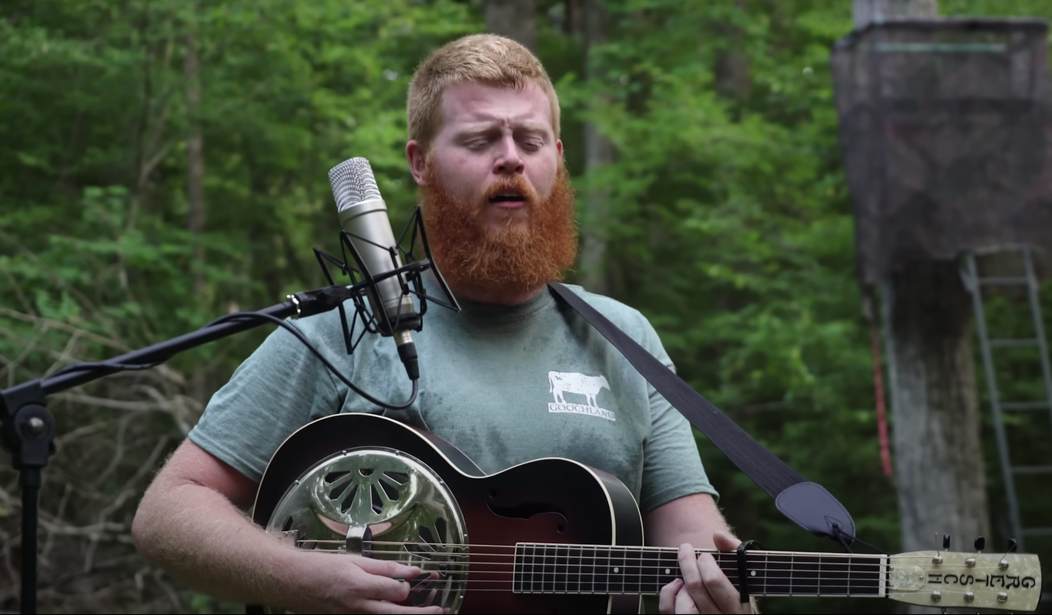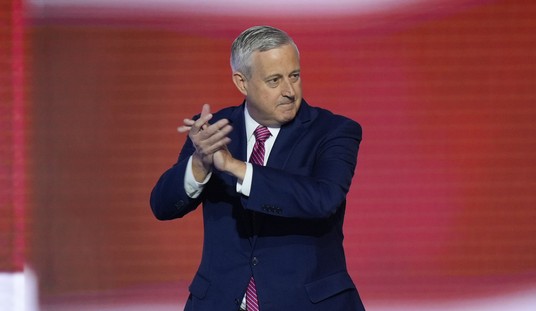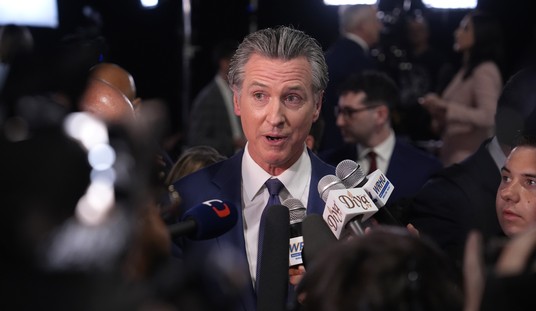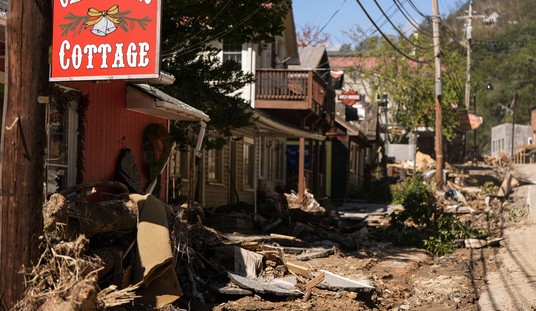"These rich men north of Richmond, Lord knows they just wanna have total control." So goes the refrain of singer and songwriter Oliver Anthony's suddenly famous song. "Wanna know what you think, wanna know what you do, and they don't think you know, but I know that you do."
The song has inspired plenty of negative feedback from inside-the-Beltway liberals who are uncomfortably aware that their home turf sits a little more than an hour's drive north of Richmond on Interstate 95. But Anthony, whose roots are far away in Southside Virginia, near the North Carolina border, insists he is "dead center down the aisle on politics" and doesn't like people to "wrap politics" around his work.
It's certainly possible that he's unaware that the overwhelming majority of "rich men" in metro Washington are liberal Democrats. Not too far back in history, lots of rich Americans voted Republican.
And the urge to "know what you think" and "what you do" has inspired in conservative Republicans 20 years ago and liberal Democrats today what maverick journalist Matt Taibbi describes as "giving government power to obtain 'transparency' into the activities of private citizens."
"Deep state" intrusiveness 20 years ago was intended to protect ordinary Americans against terrorists like those who perpetrated the 9/11 attacks. "Deep state" intrusiveness today is more often directed at protecting ordinary Americans by regulating their own behavior and habits.
Directed by people who, as Anthony's characterization of "rich men north of Richmond" suggests, see themselves as separate from and superior to the great mass of Americans whose lives they seek to monitor and control.
The danger of course is that people who see themselves as Plato's Guardians may turn out to be more like F. Scott Fitzgerald's Tom and Daisy Buchanan, "careless people" who "smashed up things and creatures and then retreated back into their money or their vast carelessness" and "let other people clean up the mess they had made."
Recommended
Anthony's degree of familiarity with "The Great Gatsby" is unclear, but his "rich men north of Richmond" these days have more than a touch of Tom and Daisy Buchanan about them.
They like to think of themselves as caring for the great masses whose conditions in life they consider themselves responsible for alleviating. But their knowledge, despite their attempts at surveillance, remains woefully incomplete and their capacity for smashing up things is greater than they like to contemplate.
One example is their array of policies that will supposedly result in "net zero" carbon emissions. They push regulations and state laws to phase out gas stoves, to eliminate microscopic emissions, after swearing on stacks of nondenominational texts they have no intention of doing so.
They proudly block the construction of pipelines that are the safest means of transporting low-emissions natural gas and which produce well-paying jobs for blue-collar workers out far beyond the Beltway.
They pass laws and promulgate regulations promising to ban gasoline-powered cars in the near future, even while blocking new electric transmission lines -- ignoring the fact that an electric-powered vehicle fleet will require immense jolts of new electricity. As mega-investor Warren Buffett said at his 2022 stockholders' meeting, "If we were to try and change over, in three years, or five years, nobody knows what would happen, but the odds that it would work well are extremely low, it seems to me."
They brag about their favorite form of economic redistribution, the Biden administration's proposed unconstitutional forgiving of $400 billion of college loan repayments. That's a redistribution of money upward in the economic and education ladders -- and a subsidy for the bloat in higher education, which now employs more administrators and facilitators than teachers and scholars.
Absent from liberals' arguments is any persuasive response to maverick Rep. Jared Golden (D-ME), who said that if people "choose to attend college, they can pay back their loans just like working-class people pay back home mortgages, car loans, and many other expenses that people choose to take out loans for."
The "vast carelessness" of "rich men north of Richmond" has been nowhere more apparent than in their COVID regimes. As Stanford epidemiologist Jay Bhattacharya has pointed out, the lockdowns and school closings jettisoned "a century of experience managing respiratory-virus pandemics," imposed when initial reports vastly overestimated the deadliness and strain on medical facilities of the pandemic and kept in place by men (including Republicans as well as Democrats) north of Richmond.
The "laptop class," Bhattacharya's term, could Skype comfortably from home, but others fared not so well. Service jobs dependent on foot traffic, in restaurants and retail, disappeared, and small businesses were bankrupted. Lockdowns prevented medical screening and treatments for growing cancers and cardiac weakening.
Hardest hit were the Democrats who indulged their teachers union political allies by acquiescing in school closings that have left millions of nonaffluent students far, perhaps irremediably far, behind.
That's not the only damage the Tom and Daisy Buchanans north of Richmond have inflicted on the less fortunate. As veteran urbanologist Joel Kotkin points out, office buildings in the nation's 10 largest metro areas today are still only about 50% occupied, with vacancy rates highest in hip, high-tech San Francisco.
That represents billions of dollars of losses not just for rich developers but for widely dispersed individuals -- and hundreds of billions less in property tax revenues for central cities and their phalanxes of unionized public employees. Sometimes careless people end up fouling their own nests.
























Join the conversation as a VIP Member